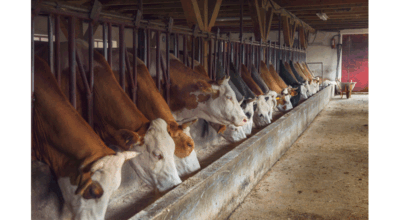State Supreme Court revives IP lawsuit
Published 7:55 pm Monday, September 21, 2020
|
Getting your Trinity Audio player ready...
|
FRANKLIN
In a unanimous Sept. 17 decision, Virginia’s Supreme Court overturned Judge Carl Eason Jr.’s 2018 dismissal of International Paper’s machinery and tools tax lawsuit against Isle of Wight County.
The company had appealed Eason’s ruling in 2019, asking the high court to determine “whether a locality may raise taxes to seize legally mandated and court-ordered tax refunds,” as Isle of Wight did in May 2017 when it hiked its M&T rate 142% to cover the resulting budget deficit from $5.6 million in refunds owed to taxpayers. This included $2.4 million that Eason had ordered repaid to IP at the conclusion of a previous lawsuit the company had won against the county in February 2017.
In a 38-page opinion, the high court agreed with Eason that IP had presented insufficient evidence to make its case on this point, but sided with the company on its contention that in offering what the county termed “economic development retention grants,” Isle of Wight violated the constitutionally mandated requirement that M&T taxes imposed by a locality be uniform.
The grants, as county officials have said, were designed to ensure M&T taxpayers paid no more and no less in fiscal year 2017-2018 than the amount of any refunds received the prior year, plus what would have been owed for 2017-2018 had the county’s M&T rate remained flat.
“[IP] asserted that M&T taxpayers who did not receive a tax refund for tax years 2013-15, for instance, paid an effective rate of $1.75 per $100 of assessed value, while those who received refunds paid higher tax rates,” Justice S. Bernard Goodwyn wrote. “It further contended that such disparate tax rates effectively created a sub-class of M&T taxpayers … The County urges this Court to consider the constitutionality of the County’s 2017 M&T tax rate increase separately from the constitutionality of its imposition of a 2017 M&T Tax Relief Program. The Supreme Court of the United States has explicitly rejected an argument similar to that the County proposes.”
As a result of the ruling, the case will head back to Isle of Wight County’s Circuit Court for a new trial, which may not happen anytime soon depending on Isle of Wight’s caseload and judicial COVID-19 precautions. According to McGuire Woods attorney Craig D. Bell, who served as lead counsel for IP during the original trial and the appeal, the non-uniformity counts are where the county’s largest potential exposure exists. If the new trial rules in favor of IP, the county would be obligated to pay a 10% interest rate on any tax refund ordered, meaning its exposure could be around $7 million.
“I suspect the county will either put on its case, if it has one, or let the court move into the remedy phase of the proceeding, assuming IP is successful,” Bell said. “Based on the conclusions of the Supreme Court, I suspect the remand will be focused on the court determining the appropriate remedy for IP.”
Sands Anderson attorney Andrew McRoberts, however, remains confident Isle of Wight will again prevail at the new trial. McRoberts served as lead counsel for the county during IP’s 2018 lawsuit and during the appeal process.
“Isle of Wight County is pleased that its legislative actions regarding the 2017 machinery and tools taxes were mostly upheld by the Virginia Supreme Court, and looks forward to resuming its defense on the one remaining issue when the trial is resumed,” McRoberts said. “We remain confident in also achieving dismissal on this issue.”
Assistant County Administrator Don Robertson declined to comment on the pending litigation. Jenny Dixon, communications manager for IP’s Franklin mill, did not comment by press time but has previously declined to comment on the company’s ongoing legal battle with Isle of Wight, also due to pending litigation.





